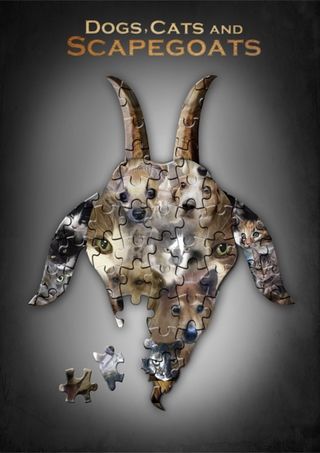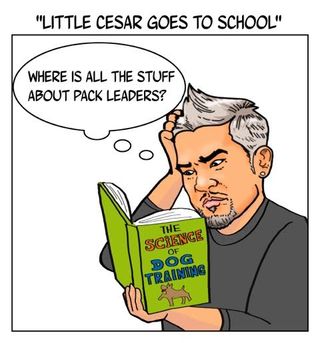Animal Behavior
Dogs, Cats and Scapegoats: Messes We Make With Companions
A new film by Hugh Dorigo about the plight of millions of companion animals
Posted August 25, 2017
The state of companion animals (a.k.a pets) in the United States
A new film by Hugh Dorigo (a Sandgrain Films production) called "Dogs, Cats and Scapegoats" is a game changer. Its description reads as follows:
Dogs, Cats and Scapegoats takes a closer look at the multifactorial causes of companion animal homelessness, many of which have become obscured amid the race to adopt and shelter these animals. From shelters to pets in homes, the sociological underpinnings of welfare issues present a unique challenge to the public. Beyond the statistics of euthanasia and adoption, society’s complex and sometimes conflicted relationship with animals is explored to better understand why the cycle of breeding to relinquishment remains entrenched in American society.
"Dogs, Cats and Scapegoats" is an encyclopedic coverage of the state of companion animals (aka pets) in the United States and contains interviews with numerous people, ranging from academics (a veritable who's who) to incredibly dedicated and passionate people working on the ground with dogs, cats, and other companion animals (some of these dedicated people also are academics), along with detailed data about the dismal state of these sentient beings. The use of the word "scapegoat"—someone who is punished for the misdeeds of others—is entirely fitting. Let me say upfront that while there are many "good" things happening, there also are some very sad stories about far too many of these individuals that need to be told, and the root causes for much of this plight might surprise you. "Dogs, Cats and Scapegoats" does this eloquently and touches on numerous issues and topics that need to be seriously addressed, difficult as they may be.

It's impossible to provide a thorough review of this outstanding film, which in many ways is a well-intentioned exposé, so here are a few snippets to whet your appetite for more.
It turns out that the risk of a pet being relinquished is well above 50%, few people admit to getting rid of a companion animal, surveys tend to represent more responsible owners in their data, there is a whole host of reasons people give up their so-called family members, and 31% of people between the ages of 18-35 don't go to shelters and 46% of this cohort saw shelter pets as second-rate citizens. There also are valuable discussions of how research into human-companion animal relationships is conducted and how "the science" becomes oversimplified and the results highly questionable. In one case, the question at hand was whether or not pets should be given as gifts. It became clear that there are many problems with the study so the conclusion that this is a good idea is highly debatable. We're also told that the organization that supported this study stopped responding when Mr. Dorigo expressed interest in the work of their research division in general (for further reading on giving animals as gifts please see "Giving Puppies as Gifts: What if They're "'The Wrong Dog?'" and "Giving Pets as Gifts" and links therein).
As one watches this film, it becomes clear that we need to revisit the age-old claim that companion animals are really treated as family members (for more discussion on this topic please see Psychology Today writer Dr. Jessica Pierce's "Are Pets Really Family?").
After watching "Dogs, Cats and Scapegoats" a few times, I reached out to Mr. Dorigo and asked him to answer a few questions about his landmark film, and thankfully he agreed to do so. Our interview went as follows.
Why did you make "Dogs Cats and Scapegoats"?
I think it all began when I was 14 years old. I was forced to surrender a dog who I found living with her eight puppies under a concrete structure near my house. That experience has never left me, nor has the rationalization that was offered in an effort to dull the impact of the reality: ”She will be adopted to a good home….” Years later I realized she was killed at the overcrowded shelter I left her in. In recent years I began to realize that we are all treated like that 14-year-old boy to some extent. We are told that welfare problems are almost solved, that a "forever home" will be found for animals that we can’t or won't care for, and worse, that the shelters can solve the abandonment/adoption problems. So I wanted to do something that would require people to look much deeper.
How did you build on your previous projects?
My last film "Beyond Closed Doors" [see also] was about farmed animals, so there was a natural corollary to farmed dogs. But along the way I discovered that if I was going to be completely honest about the subject matter I could not ignore the common psychological drivers of the mistreatment related to both classes of animals, nor could I ignore how that thinking is inextricably connected.
What are your major messages?
We cannot put our responsibilities on another, no matter how easy our society makes that for us. Most people agree that ideas and behaviors are open to question, criticism and worthy of accountability…unless they relate to animals. But that is not ethically sound thinking. Another very important theme is that when we compartmentalize our compassion to exclude animals we don’t care about, this has a palpable spillover effect on those that we do care about. The most obvious by-product of this thinking is our legal system, that protects nearly all forms of animal exploitation. So even cute puppies that everyone cares about can’t be adequately protected.
What do you hope to accomplish?
While it may be an overly broad and lofty goal, I would like people to watch this film and question their assumptions about the issues it addresses. I would like to push people to consider a course of action that is reasonable, rather than one that is simply made easy for them. A more tangible goal would be to have people realize that believing Cesar Millan is an expert in anything related to dogs is tantamount to believing that the guy who changed the oil in their car and got oily footprints all over the new floor mats is an expert in mechanical engineering.

Who is your intended audience?
In a general sense, the pet owning public is the target audience, but more narrowly I think that rescue/shelter operators and those who support their efforts will appreciate the scope and depth of the subject matter.
Are you hopeful that the state of pets in the US will change?
While I am hopeful that substantive reform will be taken, I am not expecting it in my lifetime. As long an environment exists where consumer rights trump efforts to protect animals, reform will be difficult.
Is there anything else you would like to tell readers?
I think it is important to point out that while I challenged many views in the film, the only organizations alluded to that I consider amoral are animal exploitation activists such as Pet Industry and Joint Advisory Council (PIJAC), National Animal Interest Alliance (NAIA), and the American Kennel Club (AKC). They simply have financial goals that are antithetical to the animals’ interests. While some legitimate welfare groups were also challenged in the film, I want to be clear that I regard them as having a moral compass and being part of the solution. So there can be no moral equivalence.
What are some of your current and future projects?
The next project will be a documentary of a very different type. It will address the disparate treatment of animals and will be done so in a manner that has not been attempted before. My first two films were a plea to reason, the next one will be an assault on cognitive dissonance that is fueled by emotion.
"There is finally a Cesar Millan recovery program. It is called science. Embrace it."

Thank you Hugh. I really enjoyed your film, depressing as it was in some places. However, the spirit of the incredibly dedicated people working selflessly on behalf of the various animals was incredibly uplifting and encouraging. I was thrilled to hear all the experts talk about the importance of positive training. I also was astounded to learn about how data can be massaged to show just what people want it to, and the many different meanings of the word "rescues" and about individuals who went through multiple rescues (you call it "the big shuffle") and how each was considered "successful" to benefit the organization being discussed. It's extremely obvious we have very complicated relationships with other animals (for more on this topic please see "How Come People Say They Love Animals and Kill Them?" and links therein).
I also know that there are welfare groups that oppose legislation to help dogs and other animals, and they should be called out.1 Their refusal to talk with you or to return your calls isn't all that surprising. And, I agree with you, puppy mills have to be shut down immediately and we don't need any more breeders or trainers who use dominance and intimidation to get dogs to do what we want them to do.
People are always surprised to learn about the nitty-gritty details of the state of companion animals, and they also are shocked to learn that even homed companions live highly stressful lives (for more details please see "Dogs Want and Need Much More Than They Usually Get From Us" and "Companion Animals Need Much More Than We Give Them").
I hope "Dogs, Cats and Scapegoats" reaches a global audience because there are numerous problems with pet keeping across the world, and your film lays them out very clearly and offers viable solutions (also see Jessica Pierce's Run, Spot, Run: The Ethics of Keeping Pets and references therein). I see it as a game changer in the animal-industrial complex. There is no reason our companions should be punished for our misdeeds. If they could, all of the animals would thank you for your efforts. The animals need all the support they can get and I feel certain that "Dogs, Cats and Scapegoats" will help them out immensely. Heartfelt thanks to you and to all of the fine people who work on behalf of other animals.
1Similar hypocrisy can be found among a number of conservation and welfare groups that claim to protect all animals but in practice do not (for more discussion on this topic please see "Who's Really Defending Wildlife As Wolves Are 'Removed'"? and "Wolves and Cows: Individual and Organizational Conflicts"). And zoos continue to kill healthy animals who don't fit into their breeding programs ("Zoo Ethics and the Challenges of Compassionate Conservation"). These practices are among the reasons that Jessica Pierce and I argue in our book The Animals' Agenda: Freedom, Compassion, and Coexistence in the Human Age that the science of animal welfare fails individual animals. We propose replacing the science of animal welfare with the science of animal well-being in which the life of each and very individual matters (please also see "The Animals' Agenda: An interview About Animal Well-Being" and "Animals Need More Freedom, Not Bigger Cages").
Marc Bekoff’s latest books are Jasper’s Story: Saving Moon Bears (with Jill Robinson); Ignoring Nature No More: The Case for Compassionate Conservation; Why Dogs Hump and Bees Get Depressed: The Fascinating Science of Animal Intelligence, Emotions, Friendship, and Conservation; Rewilding Our Hearts: Building Pathways of Compassion and Coexistence; The Jane Effect: Celebrating Jane Goodall (edited with Dale Peterson); and The Animals’ Agenda: Freedom, Compassion, and Coexistence in the Human Age (with Jessica Pierce). Canine Confidential: Why Dogs Do What They Do will be published in early 2018. Learn more at marcbekoff.com.




